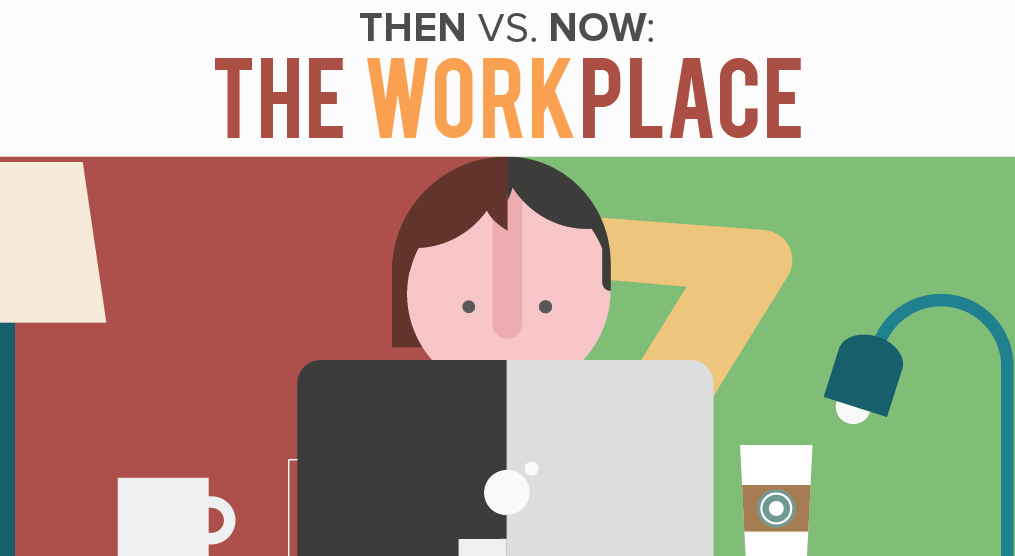5 Ways Social Media Can Help You Get a Job
Social media isn’t merely for social and entertainment purposes. Find out how it can help you increase your chances of landing a job!
Updated 21 Jun 2019

In this digital world, social media isn’t merely for social and entertainment purposes.
Recruiters are trawling the web to look up and screen potential candidates, making it important to ensure you maintain a clean online presence, even while in university!
To boot, numerous reports, including this one, suggests that a rising number of employers are using social media to screen potential candidates while those with a negative social media presence can lose out on jobs.
So, if you think having a killer CV is good enough, think again. Here are 5 suggestions on how you can use social media to improve your chances of securing a job, even while you’re still in university.
#1. Have a proper email address

You may think that no one would do a double take on your email address, but it is the recruiter’s first impression of you before delving into the email content.
After all, imagine receiving an email from [email protected] looking for an internship and saying he’s a hard worker and an eager learner. Would you open it, or send it straight to the bin?
We understand that most of your emails may have been created in your youth (i.e. [email protected]), but it helps to have an alternative email address for your professional use in order to be taken seriously.
PRO TIP
Generally, your professional email address should not contain nicknames, symbols or numbers as it may be confused as spam. We recommend using your first and last names with minimal usage of numbers.
#2. Clean up your online act

You may argue that you are within your rights to post whatever you like on social media. However, keep in mind that what you post online gives recruiters insights into the type of person you are prior to contacting you for an interview.
According to a 2017 survey by CareerBuilder, 70% of companies use social media to screen candidates to gauge their background and personality, as well as find supporting evidence of the candidate’s qualifications.
With that in mind, always think before you post that risque beach selfie or that foul rant about a reckless driver you encountered on the highway as it could impact your chances of getting hired!
PRO TIP
Not keen on deleting thousands of Facebook posts that you’ve made over the years? Consider reviewing your privacy settings on your social media accounts and personal websites to avoid spending hours deleting your posts from yesteryear.
#3. Avoid hiding too much information about yourself

Not that we’re not trying to confuse you but there’s a fine line between cleaning up your online act and deleting everything about yourself online. According to CareerBuilder’s survey, "57% of employers are less likely to call someone in for an interview if they can't find a job candidate online".
So, while it’s good to keep a certain level of privacy on social media, overdoing it may raise red flags against some employers who may look you up online to learn more about you (read: point #2) as it may seem like you have something to hide.
Additionally, keep your visible public information professional as potential employers may be turned off if you use a different name on Facebook, including faux institutions (i.e. listing Hogwarts School of Witchcraft and Wizardry) in your education background or listing a fictional employment history (i.e. professional doughnut eater at Krispy Kreme) in your ‘About Me’ section.
If you are concerned about people invading your personal space, we recommend limiting the visibility of your public information to your profile picture (keep it professional!), recent employment and academic details.
Apply for university with EduAdvisor
Secure scholarships and more when you apply to any of our 100+ partner universities.
Start now#4. Build up your LinkedIn profile

LinkedIn is one of the simplest and quickest method to build your professional online presence — you can “connect” with people across different industries and gain useful insights into their careers; receive updates on job vacancies; showcase your experience and accomplishments by highlighting your projects and published work (e.g. articles, research papers, photographs, etc.); and even have your colleagues or connections leave references on your profile.
Even if you’re not looking for a job yet, there’s no harm in creating a LinkedIn profile. You can start by uploading a professional headshot of yourself and share projects that you’ve completed in university, or simply update your academic details.
Subsequently, start connecting with working professionals in positions and companies that you’re interested in. You’ll never know where this may lead you after graduating!
PRO TIP
LinkedIn also has an active community of contributors where you can pick up tips from hiring managers, as well as on-demand online courses to upgrade your knowledge and skills.

#5. Carve your own space on the web

Blogs aren’t just for ranting about personal matters or a place to share your emo posts.
They’re also a useful platform for showcasing your work (e.g. your writing or photography skills) or to document your interests, experiences and knowledge in a particular area. This can help you paint a better picture of yourself in the eyes of potential employers.
So set aside some time to create a blog, whether it’s on WordPress, Wix or LinkedIn Publishing. Even if you’re not the best of writers, it’s still worth blogging to demonstrate your passion and interest in a subject area, especially if this is a field you want to be employed in. After all, employers want to know how you can contribute and add value to their company.
For those on the more artistic side, consider uploading your artwork onto websites such as Behance and DeviantArt to showcase your creative work and get feedback on them. Not only will potential employers be blown away, you may get fans of your artwork as a bonus!
Your online presence can make or break you — it all boils down to how you put it to use. So, before you hit ‘Enter’ on that tweet or click the ‘Share’ button on Facebook, ask yourself a few key questions: Will this negatively affect my professional reputation? What are the odds of potential recruiters stumbling across this in the near future? And will I feel comfortable if they did?
Now that you know how much your online presence may impact your future, go forth and post responsibly!






